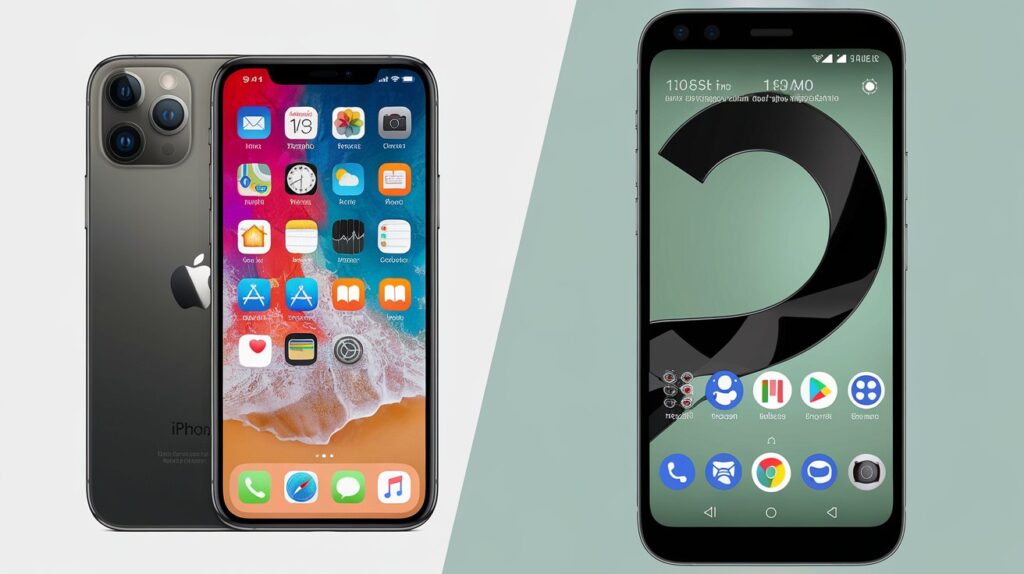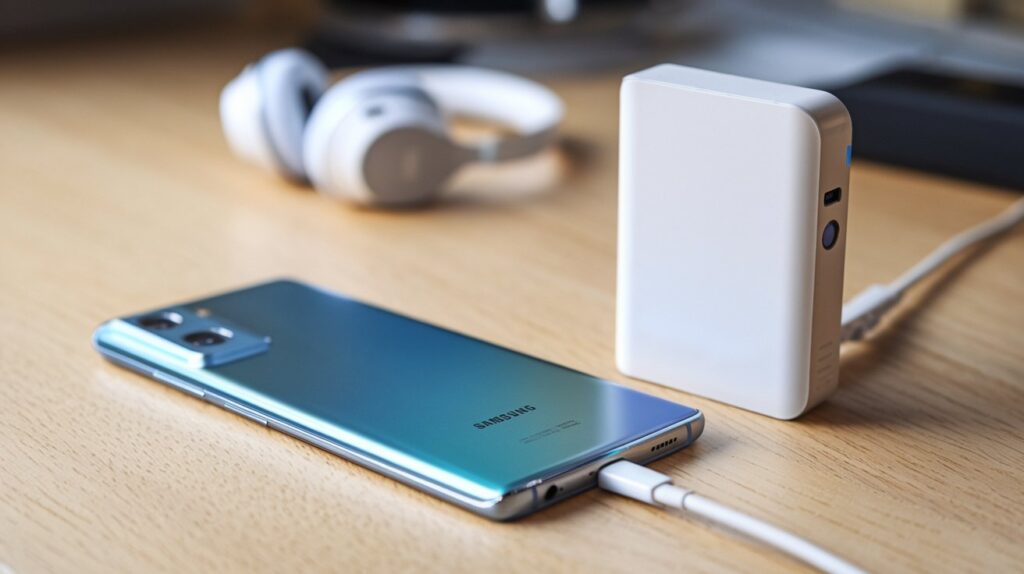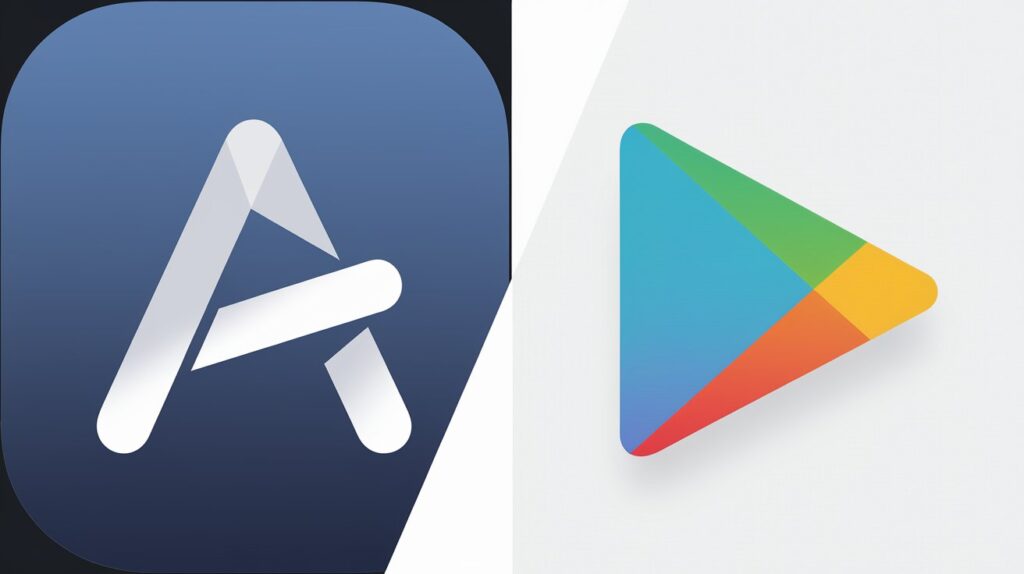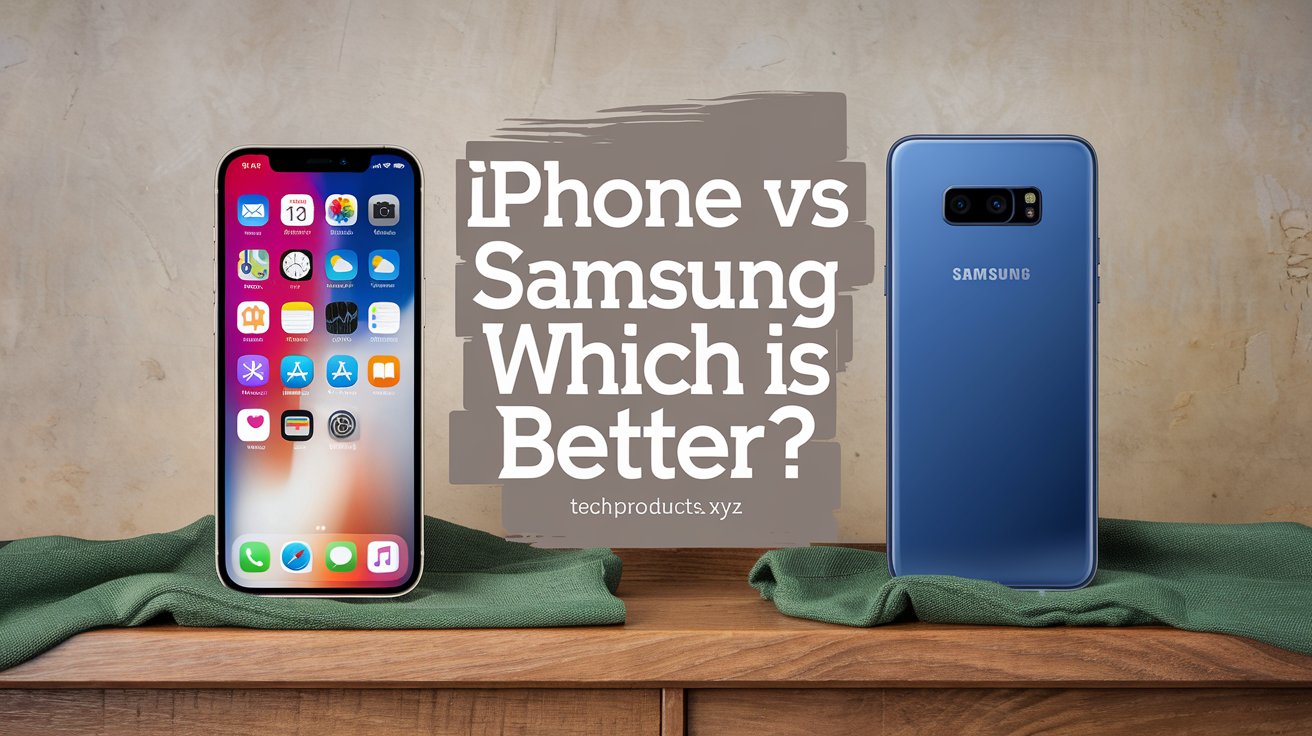However, the leader of batsmen in both iPhone and Samsung Galaxy stands at the top rung of the volatile smartphone market ruling it with advanced features, cutting-edge technology, and sleek designs. Even while looking to buy the best smartphone, consumers get confused between these two because after all individual tastes and preferences, each has its strengths as well as weaknesses.
This is a comparison of extra features that an iPhone has compared to Samsung Galaxy. It includes but not limited to the designs, operating systems, performance, camera, and price among many more. This guide shall make sure that you get the best; be it you are buying in the USA, Australia, or elsewhere.
Table of Contents
_______________________________________
1. Design and Build Quality
iPhone: Philosopher’s minimalist designing philosophy and sleek aesthetic. The iPhones are created with premium materials – glass or aluminum. In the case of the luxury end, stainless steel is used. One of the primary reasons for this high attention to detail is that nothing creaks and everything clicks, and feels rather top class. Hence an iPhone looks pretty much all other iPhones. That means they know what the actual outlook of an iPhone is from a glance.
Samsung: Of course, most innovative edge designs come from Samsung. While some smartphones in the Galaxy line do so, it is arguably within the high-end S and Z Fold series that Samsung regularly extends one limb to the breaking point in order to squeeze curved screens and other innovative form factors, like folding screens. Because Samsung’s Galaxy offers hundreds of more designs, colours, and sizes than the iPhone does, there’s almost a guarantee that someone will want a product that matches their sense of something specific.
Verdict: If one tends to like a design that doesn’t change is plain and does not alter, then you’d probably like the iPhone more. If one likes innovation then there’s miles more innovative designs available with Samsung.
________________________________________
2. Operating System (iOS vs. Android)
iPhone (iOS): It’s never really had a distraction from its own message – iOS is the flavor of the operating system which Apple uses on iPhones, long bubbled over with much good usability, greater performance, and integrated favorably well with other devices from Apple, including Macs, iPads and so on. iOS is strong and secure as well; it regularly updates new software, but customizing leaves much to be desired and lags far behind many competitors.
Samsung (Android): Samsung is preloaded with Android. Android is way more customizable than iOS. A user can customize his device any way he likes, widgets, layouts, themes, etc. Samsung has a customized skin over the top of Android called One UI so everything Android has and a few extras. Android won’t always be as pretty as iOS but definitely very much more flexible.
Verdict: If you like something which is simple and integrated perfectly with other apple products, then it’s about iPhone and iOS. If you are someone who considers both customization and flexibility as priorities, then it would be Samsung and Android.

_____________________________________
3. Performance: Processor, RAM, and Storage
iPhone: The hardware interconnect of software and hardware is what makes the iPhone go that real fast and efficient even on lesser RAM compared to Samsung. Quite raw high-end performance. The base variant of Apple would start at 64GB of storage, while the Pro variants can go up to 1TB.
Samsung: The top variants of Samsung deliver the best processors of the world inside their chipset irrespective of it being Qualcomm Snapdragon or Exynos according to region. Storage is more, and beyond that a rivaling one iPhone capacity regarding multitasking is actually extended to this feature. Another thing is that storage available with the device can be extended by using microSD cards with Samsung devices. That cannot be done with iPhones.
Verdict: Both iPhone and Samsung work superbly but with an Apple point advantage in efficiency due to more tightly integrated hardware-software that lets it breathe life of its own. To power users though, this may not be too desirable, for their possibly wanted Samsung with more RAM and high expandable storage for their heavy usage.
_____________________________________
4. Camera Quality
iPhone: All the camera technological differences have been seen in the Apple iPhone focusing on the best quality photography. Colours and its ability to process an image with powerful video recording capabilities up to 4K have made iPhones the most popular choice today. Newer variants come along with ProRAW format and Night Mode along with advanced computational photography.

Samsung: Something if it is, indeed the innovation for the thing, then Samsung fits the bill in carrying Galaxy S Ultra. For a long time, they’ve been at the forefront of the versatile phone and powerful zoom. Higher-megapixel cameras from Samsung boast incredibly high-resolution images and ultra-modern capabilities up to 100x Space Zoom. Neither its low-light snaps nor wide-angle snaps throw them off badly.
Verdict: There’s a perfect iPhone for daily photography and hand shots. If one aspires to high-class finish and zoom and all that jazz, it’s Samsung.
_____________________________________
5. Display Technology
iPhone: The highest-priced models on Apple entail Super Retina OLED, promising deep color and depth at blacks, perfect brightness. But sitting in a different thought, against that saturation, Apple goes to optimize towards spitting the truth rather than favoritism through color.
Samsung: Samsung, surely one of the chieftains in market display technologies, delivers saturation colors to the saturation point at a refresh rate of up to 120Hz. Screens for their Galaxy series are sharper and support resolutions better than iPhones.
Verdict: Samsung takes this round with its resolution and rich color output; however they seem to make a few compromises so that more precise color representation Apple works with .
6. Battery Life
iPhone: Once more, because Apple designs its hardware to use energy as frugally as possible, iPhones will automatically run all day on fairly puny batteries. The newer models really impress when used with iOS 14 or later and full days of average usage.
Samsung: Overall, the big news for Samsung is that it will be able to carry bigger batteries within its flagships, though the lives of those batteries will depend on usage as well as features like what refresh rate is being shown. The Galaxy does support quicker charging than Apple though Apple does support wireless charging.

Verdict: Both the brands have a good battery life, but Samsung is offering faster charging, and more extensive battery size, and the efficiency of Apple makes the most of its smaller capacity
_____________________________________
7. Software and Updates
This is the very reason why later support given by Apple to its products has made it highly reliable compared with others. Most iPhones would receive software updates for 5-6 years.
Conclusion Samsung Last but not the least, Samsung really stepped up the update game lately and also guarantees 4 years of main updates and security patches for 5 years on its flagships. Still, android updates are a little slower to arrive as compared to an iPhone.
Verdict: More stable and long-term support from Apple for whoever really intends to use it long after makes an iPhone a better buy.
8. Price and Value for Money
iPhones: The products from the company happen to run at a premium price. Although iPhones retain much more value with time, the actual purchase may be a notch higher. Features such as larger storage options tag on directly with premiums, and Apple does not make too many cuts with its device prices very often.
Samsung: Actually, when it comes to choices, there cannot be any brand better than Samsung as it has something for everybody, ranging from entry-level devices to flag ships, so that a buyer always finds a perfect fit in budget. Generally, Samsung gets discounted within a week or two of release dates and then the customer gets a better deal; however, the Samsung phones depreciate much faster than the iPhones.
Verdict: There are much more choices and better offers much more often, if you think of the price in counting. Nevertheless, iPhones are much more expensive, they don’t drop in value in long term.
_____________________________________
9. Ecosystem: Integration with Other Devices
iPhone: This would probably be the smoothest user experience in the tech industry, and it plays nicely with Macs, iPads, Apple Watches, and services like iCloud and Apple Music. So if you are already an Apple ecosystem, the difference that an iPhone can make, in terms of synergy, is unmatched.
Samsung: Samsung too has created an extremely popular ecosystem for itself, devices include like Galaxy Watch, Galaxy Tab, and Galaxy Buds. Samsung too very seamlessly connects with other Android devices and smart home systems, though the Samsung Ecosystem is not as well-integrated as it is in the case of Apple’s.
Verdict: If you’re already familiar with other Apple devices, then it would be quite obvious to take the iPhone. If you like to flip between many different kinds of devices and are on a non-Samsung or non-Android device, then Samsung will do the trick well.
______________________________________
10. User Experience and Accessibility
iPhone: For Apple, accessibility is everything, and that comes with some of the following features on that include VoiceOver-an audio reader; AssistiveTouch, where you can attach custom controls anywhere on the screen; and closed captions on video clips. iOS itself is intuitive but accessible even for the most non-techie user: devices are so consistent.
Samsung: For most users, the interface of Samsung is little confusing as compared to iOS. But Samsung has way too many access options containing screen reader, magnifier, and adaptability of an android is so flexible that it can be moulded according to what a user needs and requires.
Verdict: So if you are a casual user Apple’s iOS will pretty much intuitive and easy if you’re a power user, Samsung’s One UI has quite a lot in store for you.
_____________________________________
11. Durability and Reparability
iPhone: Designs are pretty robust and water and dust-resistant, the latest ones rated IP68 though cannot self-repair and when it has to be repaired, it is pretty expensive.
Samsung: As much as strength on the same level of the Samsung flagship of the day which dawns much of it for being water and scratch resistant with Gorilla Glass. And comes also that most of the parts tend to source easier than are the iPads.
Verdict: Both have assembled robust gadgets, but Samsung will most probably bring cheaper repair options
12. App Store and Google Play
App Store: An App Store is much more malware-proof because it has a high level of security. Still, the system provides less flexibility regarding third-party apps because it forms a closed system.
Google Play: when it comes to applications, is far more vulnerable. The very architecture of Android puts a user in the position in rights to install an application from any place one wants, there therefore remains allotting the responsibility on the users to assure overall security of the devices.

_______________________________________
13. Security and Privacy
Apple’s Emphasis on Privacy: It shows more about privacy; although it has some features being provided by the company for iPhone, such as doing on-device data processing, end-to-end encryption, and transparency reports. Therefore, safety is preferred by the security-conscious users.
Samsung Security Innovations: On Samsung, the company has improved safety on the devices by use of Knox technology which deeply embeds multi-layered security within the device. Already the company offers recurrent security upgrades and abilities such as biometric authentication through facial recognition and fingerprint sensors.
14. Customer Care and Warranty
The Golden Customer Service of Apple
The other sphere through which Apple feels the need for appreciation is through the customer services that it offers to the user to the extent to which it gives him feedback. First and foremost, I had to share with you that through the AppleCare, one can extend his warranty and receive support for various issues from failure in hardware to various problems in software.
Warranty Coverage of Samsung
Similar to Apple, Samsung has customer care services with further warranty options like Samsung Care + that is a kind of warranty cover which has accidental damage and screen protection hence giving you peace of mind.
15. Conclusion
Though all that matters is people’s preference and priority along with their budget, though if it really makes a lot of sense to go ahead with something that would be pretty seamless, easy to use and highly secured, then I think they might want to give their hard earned money to the iPhone. In other cases, one who wants a wide variety of devices, cutting-edge technology and customization might really want Samsung.
Conclusion In a nutshell, both brands offer mobile devices according to what serves your need best. Now, know what you want, know what’s more in there, and choose which one will be the best you for your lifestyle.
16. FAQs
1. Camera Comparison: iPhone vs. Samsung camera: And then who do you think better?
It just comes down to the very fact that what was there in iPhone mainly focused on color accuracy and consistency, while Samsung has all such innovative stuff as Space Zoom along with vibrant image processing.
2. How does Samsung compare with the iPhone in the raw level for the ability to endure?
On raw battery alone, high capacity plus fast-charging often put the former at an advantage in terms of long life while the iPhones are highly optimized in fine power utilization.
3. iPhone or Samsung. Which one is more capable?
How durability of iPhones shows up in more bit and byte economics and other ways-Samsung comes out head and shoulders ahead on resiliency in its flagship hardware products.
4. Which is safer, iOS or Android?
In fact, iOS bases its operation on a pretty closed system, with application policies much stricter. Yet Samsung offers its Knox security platform to all its Android users.
5. Better gaming device; iPhone, Samsung?
Well if it comes to its gaming performance-wise then it would seem that the iPhone outclasses its counterparts because the A-series chips are better than that of Samsung, but maybe a couple of other things like higher screen, larger screen, refresh rate would give the Samsung user a more immersed experience for gaming purposes.
6. Compare iPhone with Samsung: Which one would sell better in the short term?
Residual values: Technically, the iPads retain their residual value a bit better than Samsung for the long haul because of their brand strength and longer-term software support.
7. Which is better, iPhone or Samsung?
With Samsung, you may prefer this product if you insist on high-end camera technology, extreme customizations that leaves room for further personalization, and leading-edge display capabilities. It is for the user who places experience streamlinedness, robust data security, and tightly bound integration across devices as paramount, so it looks toward the top choice as an Apple.


1 thought on ““iPhone vs Samsung: Which is Better?””